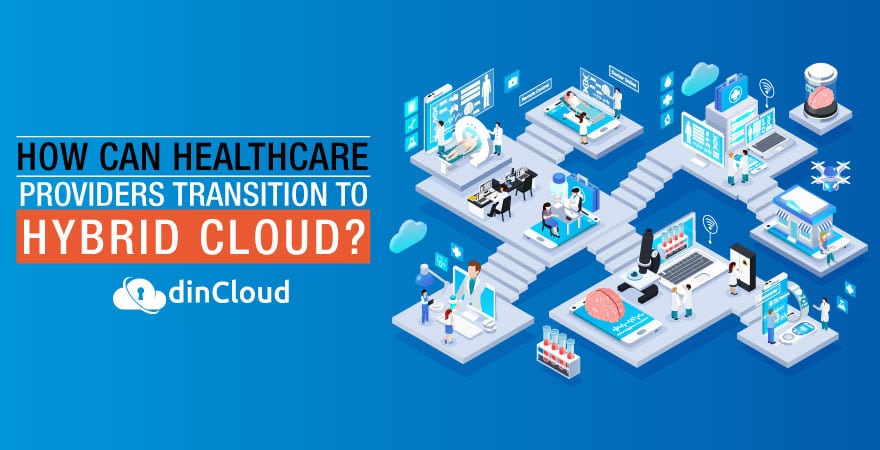The healthcare sector is at the forefront of pandemic response. Despite being a heavily regulated segment, healthcare has had to evolve rapidly over the past few months. This was done in a bid to improve the delivery of health services during this crisis.

As compared to other industries, the healthcare sector is not as comfortable with IT related technologies. What adds to this pre-existing limitation is the sensitivity of medical records and the high stakes related to their security.
For this reason, healthcare providers have approached IT related decision making with a very cautious approach. However, this approach will soon prove inadequate and healthcare providing institutions will have to leverage technologies such as the Cloud.
Due to the extremely versatile nature of healthcare, a simple IT infrastructure or solution won’t work under the “one size fits all” approach. Within the healthcare sector, each institution has a different role to play and thus, IT infrastructure needs will vary.
Related: How is the Cloud Leading the Evolution of Healthcare?
However, the healthcare sector is so inter-twined that there is hardly any such provider that can operate in complete isolation. Rather its quite the opposite because at times, one medical facility is available at a particular health provider, while another is same place else.
Any such situation warrants an exchange of information such as highly sensitive medical records. So, there is not only the need for a secure Cloud infrastructure in-house, rather this need may also extend to other healthcare providers in the space as well.
Healthcare and the Hybrid Cloud – A Viable Option
For some of the above cited reasons and beyond, a hybrid cloud infrastructure is suited to most healthcare providers. Any such deployment provides a mix of both on-premise data centers as well as public Cloud Service Provides (CSP) like dinCloud.
Related: Advantages & Disadvantages of Cloud Computing In HealthCare
Organizational Culture
Prior to the pandemic, most healthcare providers have remained shy of the Cloud on the pretext of securing medical health records. Well, all this is changing now and to deliver services such as telemedicine, you need technologies such as the Cloud.
So, the major change should come in the organizational culture of the healthcare provider. To deliver the best results, this cultural change should flow from the top most tier of the organization to the lower ones. This will have a trickle-down effect for the overall good.
Cyber and Health Records Safety
This is one of the key areas for healthcare providers, as medical records are a very valuable “commodity” for cyber criminals. It comes as little surprise that during this pandemic, healthcare provides have been a major hotspot for malware and ransomware attacks.
Another issue that is closely related to security is that of compliance. This becomes even more important in the case of public cloud providers. So, healthcare providers must evaluate the compliance related profile of their public cloud provider.
Related: Healthcare Challenges that the Cloud Can Address
Technological Compatibility
Certain legacy applications currently being used by a healthcare provider in-house may not be equipped for running in the Cloud. For this, healthcare institutions may need to undertake fresh development of their legacy apps to run in the public cloud.
Another option can be the tweaking of legacy, on-premise applications in order to make them “cloud worthy”. For such scenarios, DevOps may prove as a time and resource efficient option for most health providers.
Financial Constraints
The healthcare sector right now is not only administratively constrained, but things are also not that good on the financial side. This will make the task of transitioning to a hybrid cloud all that more challenging.
However, once healthcare providers weigh the total and long term ownership costs of the Cloud against the benefits, it will all make much more sense. Most importantly, the Cloud can be instrumental in delivering safe healthcare in these testing circumstances.
Related: How Covid-19 is Reshaping Healthcare Technologies?
Conclusion
The Hybrid Cloud in the healthcare sector can be deemed as the perfect middle ground between entirely on-premise, legacy infrastructures and the full-on public cloud. Better sooner than later, healthcare providers will also need to incorporate the Cloud.
Feel free to Contact dinCloud for extremely secure and highly compliant cloud solutions for your healthcare institution.


